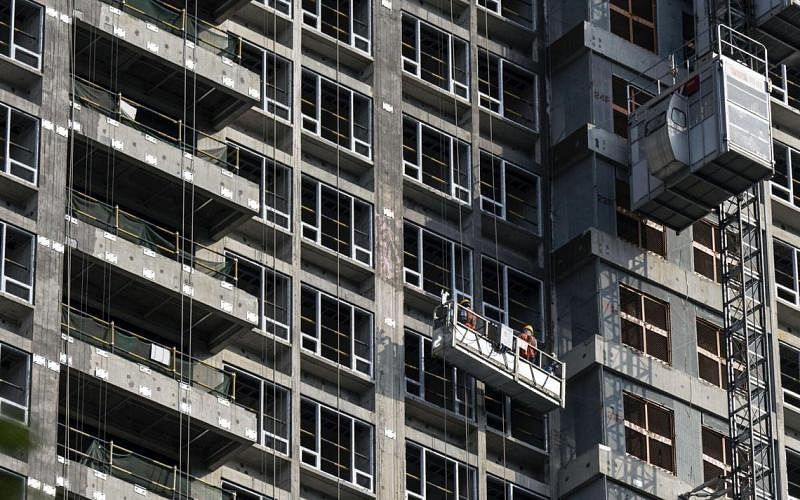The Chinese Real Estate Market Set to Undergo Major Adjustments Around May Day Golden Week
As many major cities in China have recently lifted purchase restrictions in the property market, news has surfaced that real estate policies will undergo significant changes around the upcoming “May Day” Golden Week. It is anticipated that purchase restrictions and price restrictions will be further relaxed, sparking optimism in the market and driving Chinese real estate stocks to rise across the board on Monday (April 29).
The Political Bureau of the Communist Party of China typically holds a meeting at the end of April to analyze the current economic situation and economic work. Market rumors suggest that after this week’s Politburo meeting, real estate policies will see a series of adjustments.
These adjustments may include shifting the focus of work from affordable housing construction, public infrastructure projects, and urban village renovation to destocking; purchasing existing houses for rental housing by state-owned enterprises or local urban investment companies; and liberalizing demand policies by relaxing purchase and price restrictions.
Yan Yuejin, research director of the real estate consultancy Yiju Research Institute, explained that although the three major projects will continue to progress, there are challenges such as conflicts between affordable housing supply and commercial housing inventory. He noted that “the current pressure on real estate companies to destock is still very high, affecting fund withdrawal. Appropriate policy adjustments are in line with expectations.”
Prior to this news, many hot cities in China had already relaxed property market purchase restrictions. Chengdu, Sichuan Province announced on Sunday (April 28) that housing purchase restrictions would be completely lifted, following in the footsteps of Wuhan, Hefei, Nanjing, and Changsha.
Foreign investment institutions are also changing their stance on China’s property market. UBS Greater China’s head of real estate research, Lin Zhenhong, expressed optimism last week, stating that UBS is more positive about China’s real estate industry for the first time in three years. He expects housing demand and supply to normalize with government aid, potentially leading to a rebound in large developer stocks.
The anticipation of eased property market policies caused Chinese real estate stocks to soar on Monday, pushing A shares past the 3,100-point mark. Among the many real estate stocks that hit their daily limit, Vanke, a real estate giant, was one of them despite being downgraded by Moody’s last Friday.
Moody’s downgraded Vanke’s long-term corporate family rating and expressed concerns about the company’s credit metrics and liquidity buffers in the coming months. Vanke responded by stating that its operations remain stable and receiving continued support from financial institutions and major shareholders.
Despite these positive changes, some core cities still maintain purchase restrictions, with only Beijing, Shanghai, Guangzhou, Shenzhen, Hangzhou, Tianjin, and Xi’an keeping some areas under restrictions.
In an interview with Lianhe Zaobao, Huang Tao, project general manager of Guangzhou Centaline Real Estate, shared that the market is expecting major policies to boost confidence on the eve of May Day. While he believes that further relaxing purchase restrictions will improve market sentiment, he also cautioned that a rapid rebound may not be seen in the short term given the current economic situation.
Yan Yuejin further emphasized that the effects of loose policies will take time to materialize, and additional measures may be needed to stimulate activity in other markets. Overall, the Chinese real estate market is bracing for significant changes in the coming weeks as policies are adjusted to meet evolving market demands.
